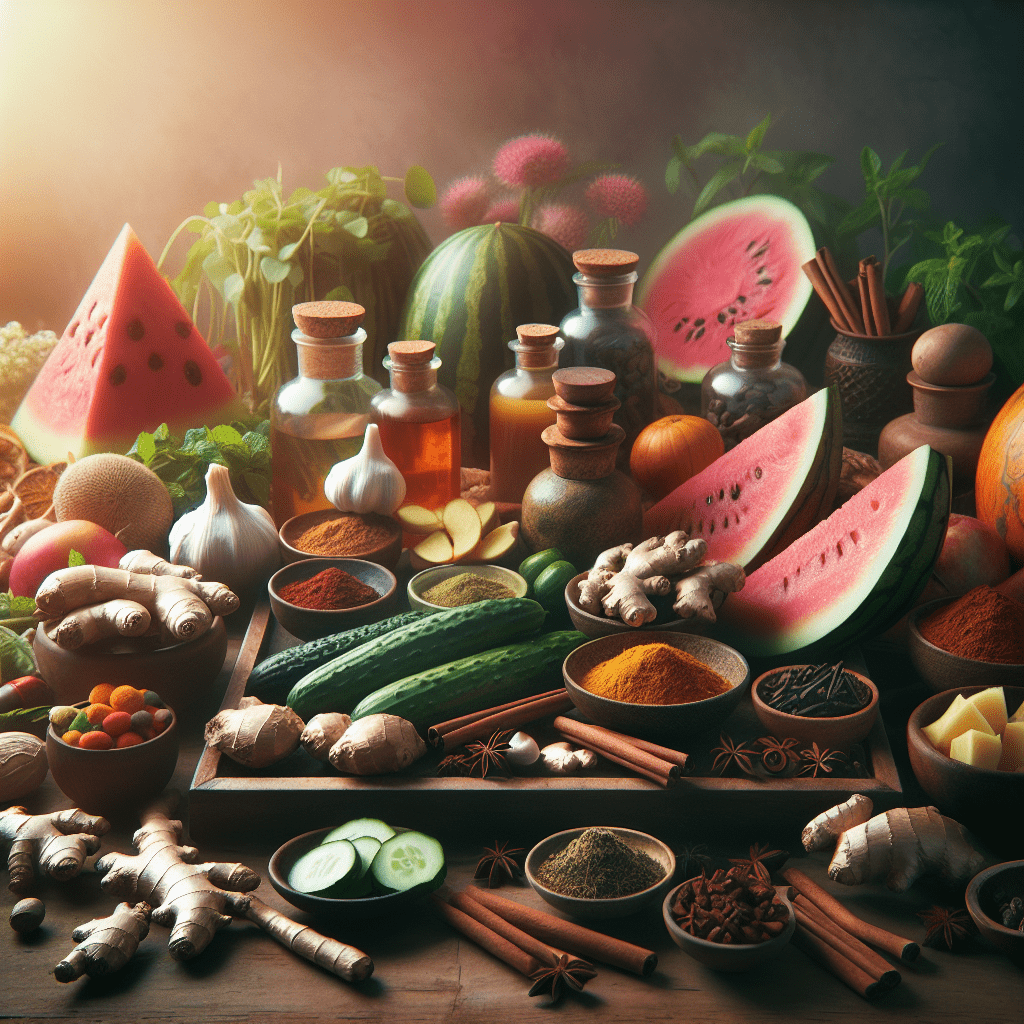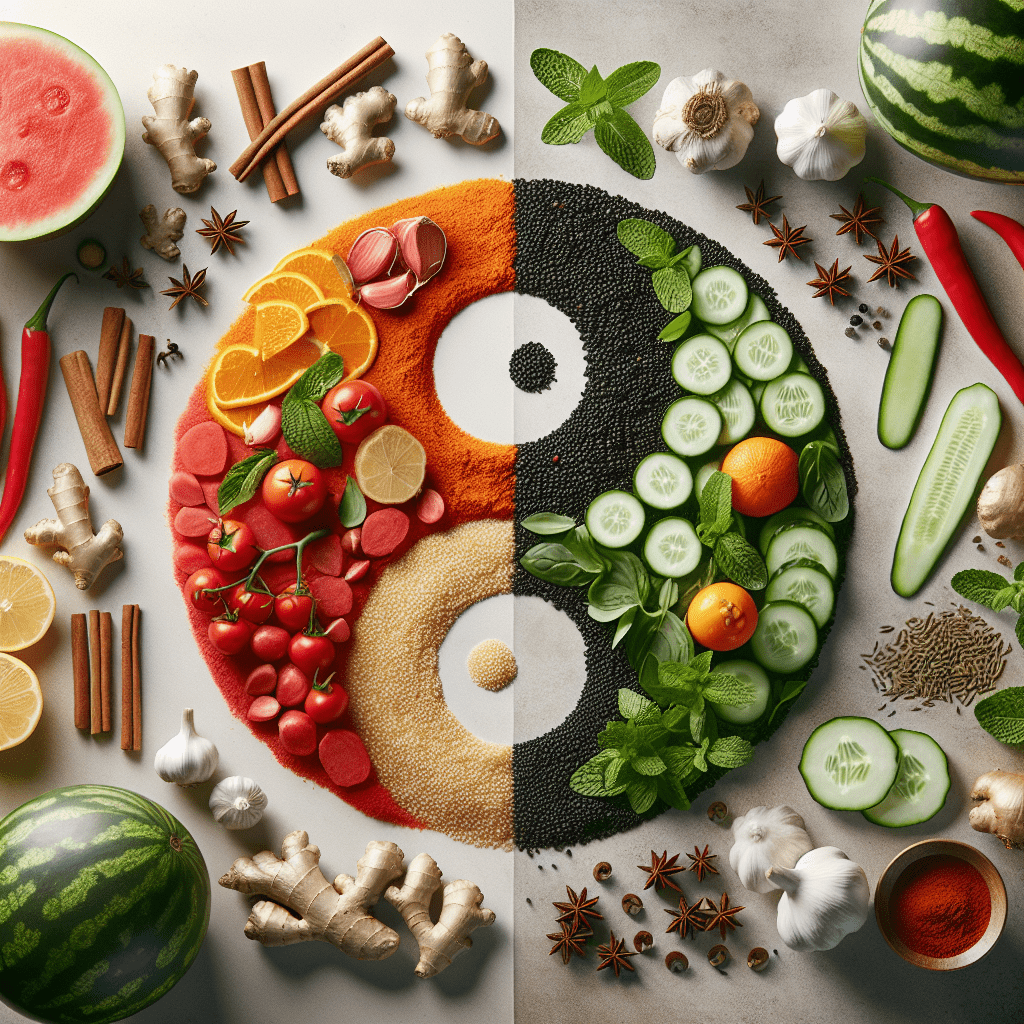Discover how common kitchen ingredients can deliver extraordinary health benefits, working with your body’s natural healing processes in ways conventional medicine often can’t match.
In a world where medicine cabinets are often stocked with synthetic pills and supplements, there’s a powerful healing force sitting right in your kitchen. The ancient concept of “food as medicine” is experiencing a remarkable renaissance, and for good reason. This philosophy, deeply rooted in Eastern healing traditions, recognizes that what we eat doesn’t just satisfy hunger – it can prevent illness, manage chronic conditions, and promote overall wellness in ways that sometimes surpass conventional medications.
The idea isn’t new. For thousands of years, Eastern medical traditions have viewed food not just as sustenance but as a powerful healing tool. This holistic approach to wellness sees the body as an interconnected system where balance is key, and the right foods can help restore harmony when things go awry. Today, as more people seek natural alternatives to pharmaceutical interventions, this age-old wisdom is finding new relevance.
Let’s explore ten everyday superfoods that truly embody the food as medicine concept – common items you can easily incorporate into your daily meals that pack extraordinary healing potential. These natural remedies aren’t just healthy additions to your diet; they’re nature’s pharmacy, offering targeted benefits for specific health concerns.
1. Garlic: Nature’s Antibiotic
Garlic has been used for medicinal purposes across virtually every ancient civilization, from Egypt to China, India to Greece. Its potent healing properties have earned it the nickname “nature’s penicillin.”
Often called nature’s antibiotic, garlic has been used medicinally for thousands of years. This pungent bulb contains allicin, a powerful compound released when garlic is crushed or chopped.
Garlic acts like a natural heart doctor, helping to reduce cholesterol levels and regulate blood pressure. Studies show that regular garlic consumption can lower total cholesterol by up to 10% in individuals with high cholesterol. Beyond cardiovascular benefits, garlic boasts impressive antimicrobial properties, fighting bacteria, viruses, and fungi that conventional antibiotics sometimes can’t touch.
For maximum benefit, crush fresh garlic and let it sit for 10-15 minutes before cooking. This allows the enzymatic reaction that produces allicin to complete. Add it to soups, stir-fries, or dressings for a flavor and health boost.
2. Ginger: The Tummy’s Best Friend
Ginger has been a cornerstone of Eastern medicine for over 5,000 years, particularly in Traditional Chinese Medicine and Ayurveda, where it’s considered a universal medicine.
When digestive troubles strike, ginger offers relief better than many over-the-counter options. This knobby root has been a staple in Eastern medicine for centuries, particularly for its anti-nausea and anti-inflammatory effects.
Ginger contains powerful compounds called gingerols and shogaols that calm upset stomachs, reduce nausea, and ease motion sickness. It’s particularly effective for morning sickness during pregnancy, with studies showing it works as well as some prescription medications but without the side effects.
Beyond digestive benefits, ginger reduces inflammation throughout the body, potentially easing arthritis pain and supporting immune function. Try fresh ginger tea by steeping sliced ginger in hot water, add it to smoothies, or incorporate it into stir-fries and curries.
3. Turmeric: The Golden Healer
In Ayurvedic medicine, turmeric has been used for over 4,000 years as a remedy for digestive issues, pain relief, and wound healing. Its Sanskrit name, “Gauri,” means “one who is bright and yellow.”
This vibrant yellow spice has moved from obscurity to superfood stardom in recent years, and with good reason. Turmeric contains curcumin, a compound with extraordinary anti-inflammatory and antioxidant properties.
As a natural anti-inflammatory, turmeric rivals many pharmaceutical options without the side effects. Research shows it may help manage conditions like arthritis, digestive disorders, and even depression. Its anti-inflammatory effects can also support recovery after exercise and reduce chronic inflammation that contributes to many diseases.
For best absorption, pair turmeric with black pepper, which contains piperine that enhances curcumin absorption by up to 2,000%. Try golden milk (turmeric mixed with warm milk and honey), add it to rice dishes, or incorporate it into soups and stews. Learn more about turning your everyday meals into medicine with these simple techniques.
4. Blueberries: Brain-Boosting Berries
Wild blueberries have been part of Native American culture for centuries, used both as food and medicine. Modern research has earned them the nickname “brain berries” among scientists studying cognitive health.
These tiny fruits pack an outsized nutritional punch, earning them a well-deserved place on any food as medicine list. Blueberries are among the highest antioxidant foods available, particularly rich in anthocyanins that give them their deep blue color.
What makes blueberries exceptional is their ability to cross the blood-brain barrier, delivering their protective compounds directly to your brain. Regular consumption has been linked to improved memory, delayed brain aging, and reduced risk of neurodegenerative diseases. One study found that women who ate one cup of blueberries weekly experienced a 2.5-year delay in cognitive aging compared to non-consumers.
Beyond brain health, blueberries support heart health by improving cholesterol profiles and reducing blood pressure. They’re also anti-inflammatory powerhouses, potentially reducing the risk of chronic diseases from diabetes to certain cancers.
5. Fatty Fish: Omega-3 Pharmacy
Fish consumption has been linked to the exceptional longevity and low rates of heart disease in coastal populations like the Japanese of Okinawa and the Mediterranean communities – regions with the highest concentrations of centenarians worldwide.
Salmon, mackerel, sardines, and other fatty fish are swimming reservoirs of omega-3 fatty acids – essential fats our bodies can’t produce on their own. These remarkable compounds function like natural mood regulators and joint lubricants.
The omega-3s in fatty fish, particularly EPA and DHA, help reduce inflammation throughout the body, supporting heart health by lowering triglycerides and reducing blood pressure. They’re also crucial for brain health, with studies linking regular consumption to reduced depression, anxiety, and improved cognitive function.
For joint health, the anti-inflammatory effects of omega-3s can reduce morning stiffness and joint pain in conditions like rheumatoid arthritis, sometimes as effectively as anti-inflammatory drugs. Aim for two servings of fatty fish weekly to maintain healthy omega-3 levels.
6. Fermented Foods: Gut Healers
Nearly every traditional culture worldwide has some form of fermented food in their diet, from Korean kimchi to German sauerkraut, Japanese natto to Eastern European kefir – a testament to their universal health benefits.
Kimchi, sauerkraut, kefir, yogurt – these traditional fermented foods have been part of human diets for millennia, and now science is confirming their medicinal value. These foods contain probiotics, beneficial bacteria that support digestive health and overall immunity.
The gut is often called our “second brain,” with growing evidence of its crucial role in overall health. Fermented foods help populate your digestive tract with beneficial bacteria, improving digestion, enhancing nutrient absorption, and even supporting mental health through the gut-brain connection. This is why therapeutic nutrition often emphasizes fermented foods for their medicinal properties.
Regular consumption of fermented foods has been linked to reduced inflammation, improved immune function, and better management of conditions like IBS, eczema, and allergies. Try incorporating small amounts of different fermented foods into your diet daily for cumulative benefits.
7. Leafy Greens: Cellular Cleansers
Green leafy vegetables have been revered in both Eastern and Western medical traditions. In Traditional Chinese Medicine, they’re considered cooling foods that cleanse the blood and support liver function.
Spinach, kale, collards, and other dark leafy greens are nutritional powerhouses that function as cellular cleansers in your body. These versatile vegetables are rich in vitamins, minerals, and phytonutrients that support nearly every body system.
Leafy greens are particularly rich in folate, vitamins A, C, and K, iron, calcium, and fiber. They also contain unique plant compounds like lutein and zeaxanthin that protect eye health and may reduce the risk of macular degeneration.
The chlorophyll in greens supports detoxification pathways in the liver, helping your body process and eliminate toxins more efficiently. Regular consumption has been linked to reduced cancer risk, better heart health, and improved cognitive function. Aim for at least one cup of dark leafy greens daily, whether in salads, smoothies, or sautéed as a side dish.
8. Nuts and Seeds: Heart Protectors
The ancient Doctrine of Signatures suggested that walnuts, with their brain-like appearance, were good for brain health – an intuition modern science has confirmed through numerous studies on cognitive benefits.
These small nutritional giants function like heart protectors in your body. Walnuts, almonds, flaxseeds, and chia seeds are particularly powerful, offering healthy fats, protein, fiber, and a range of micronutrients.
Walnuts, with their brain-like appearance, are especially rich in ALA omega-3 fatty acids and antioxidants that support brain health. Flaxseeds and chia seeds provide fiber that helps regulate cholesterol and blood sugar levels. Almonds are rich in vitamin E, which protects cells from oxidative damage.
Studies consistently show that regular nut consumption is associated with reduced risk of heart disease, with benefits seen with as little as a handful several times weekly. The combination of healthy fats, plant sterols, fiber, and antioxidants in nuts and seeds creates a cardioprotective effect that rivals many heart medications.
9. Mushrooms: Immune Modulators
In Traditional Chinese Medicine, mushrooms like reishi (lingzhi) have been called the “mushroom of immortality” and have been used for over 2,000 years to promote longevity and overall wellness.
Often overlooked in Western diets, mushrooms have been central to Eastern medicine for thousands of years. Varieties like shiitake, maitake, and reishi contain unique compounds that function as immune modulators – substances that can both stimulate and regulate immune function.
Mushrooms contain beta-glucans, complex sugars that enhance immune cell activity and improve the body’s defense against pathogens. They’re also one of the few dietary sources of vitamin D when exposed to sunlight during growth, supporting bone health and immune function.
Beyond immune support, certain mushroom varieties show promising anti-cancer properties, with research suggesting they may help prevent and treat various types of cancer. Try incorporating a variety of mushrooms into soups, stir-fries, and grain dishes several times weekly.
10. Green Tea: Cellular Protector
Green tea has been consumed in China for over 5,000 years, originally as a medicinal beverage before becoming a daily drink. Buddhist monks used it to stay alert during long meditation sessions.
This ancient beverage is more than just a comforting drink – it’s a potent medicine in a cup. Green tea contains catechins, particularly EGCG (epigallocatechin gallate), that function as powerful antioxidants in the body.
The catechins in green tea protect cells from damage, reduce inflammation, and may help prevent chronic diseases. Regular consumption has been linked to reduced risk of heart disease, certain cancers, and neurodegenerative conditions like Alzheimer’s and Parkinson’s.
Green tea also contains L-theanine, an amino acid that promotes relaxation without drowsiness, creating a state of calm alertness. This makes it an excellent alternative to coffee for sustainable energy without the jitters. Aim for 2-3 cups daily, brewing from loose leaves rather than bags when possible for maximum benefit.
Embracing Food as Medicine for Holistic Wellness
“Let food be thy medicine and medicine be thy food” – often attributed to Hippocrates, this ancient wisdom captures the essence of using nutrition as a primary tool for maintaining health and treating disease.
These ten superfoods represent just the beginning of what’s possible when we embrace the food as medicine concept. Each offers unique healing properties that work with your body’s natural processes rather than overriding them as many pharmaceuticals do.
The beauty of this approach lies in its holistic nature – a cornerstone of Eastern healing philosophies. Rather than targeting isolated symptoms, these foods support overall wellness, addressing the root causes of imbalance in the body. They work synergistically, their effects compounding when consumed regularly as part of a varied diet.
This ancient wisdom aligns perfectly with modern nutritional science, which increasingly recognizes the profound impact of diet on health outcomes. What makes platforms like EASTCHI AI so revolutionary is their ability to personalize these insights based on your unique constitution and needs. By analyzing your individual patterns according to Eastern medicine principles like Five Element Theory, EASTCHI AI can recommend specific foods that will benefit your particular body type and current health status.
As we navigate the complexities of modern health challenges, combining the time-tested wisdom of food as medicine with cutting-edge technology offers a powerful pathway to optimal wellness. Consider how you might incorporate more of these healing foods into your daily routine, viewing your kitchen as your first medicine cabinet.
Remember that consistency matters more than perfection – small, sustainable changes to your diet can yield remarkable benefits over time. By embracing this holistic approach to nutrition, you’re not just feeding your body; you’re nurturing it with nature’s most powerful medicine.




